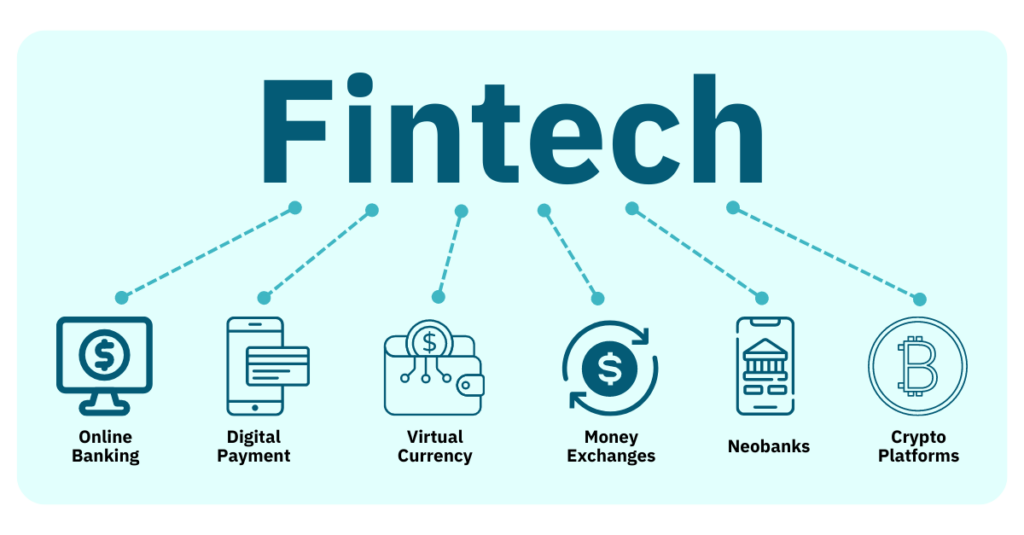Welcome to TIME FX LTD
- +44-20-8987-8083
- 20 Wenlock Road, London, England, N1 7GU
- hello@timefx.co.uk
Welcome to TIME FX LTD


In today’s fast-paced digital world, financial technology, or fintech, is reshaping the way businesses operate and interact with their finances. The rapid advancements in technology have created new opportunities and challenges for small businesses, making it easier for them to access financial services, manage cash flow, and operate globally. This transformation has been especially crucial for small and medium-sized enterprises (SMEs) that often face challenges in securing funding, managing cash flow, and accessing affordable financial services. This article explores how fintech is revolutionizing small business finance, the advantages it offers, and the challenges that come with it.

Fintech, or financial technology, refers to the integration of technology in the financial services sector. This includes everything from mobile payments and online lending platforms to digital wallets and blockchain technology. Fintech companies use digital solutions to offer financial services that are faster, cheaper, and more accessible than traditional banks and financial institutions. They leverage data, artificial intelligence (AI), machine learning, and advanced algorithms to streamline financial processes, making it easier for businesses to access the services they need to grow.
The impact of fintech has been profound, not just for individual consumers but for businesses as well, particularly small businesses that may not have access to large financial resources. Through fintech, SMEs now have more financial tools at their disposal, which has empowered them to compete with larger enterprises.
There are several key areas where fintech is making a difference for small businesses. Below, we explore how these fintech solutions are changing the landscape of business finance.
A. Access to Capital
One of the most significant challenges for SMEs has traditionally been accessing capital. Fintech lending platforms have transformed the lending landscape by providing alternative sources of funding. Through peer-to-peer (P2P) lending, crowdfunding, and online loan platforms, SMEs can access funds without going through the lengthy and often restrictive processes associated with traditional banks.
Digital lending platforms use advanced algorithms to assess creditworthiness, making lending decisions in minutes. This quick access to funds can be crucial for SMEs that need immediate capital to cover operational costs, expand, or invest in new opportunities. Additionally, fintech lenders often have more flexible requirements compared to traditional banks, which makes it easier for small businesses with limited credit histories to secure loans.
B. Cash Flow Management
Cash flow management is vital for the survival of any business, and fintech solutions have made it easier for SMEs to manage their finances in real-time. Through digital accounting platforms, businesses can track their income and expenses, manage invoices, and get a clear picture of their cash flow. Some platforms offer automated invoicing and payment reminders, which help businesses get paid faster and reduce the chances of late payments.
Moreover, some fintech companies provide cash flow forecasting tools, allowing SMEs to predict future cash flow based on historical data. These tools give business owners valuable insights into their financial health, helping them make informed decisions.
C. Payments and Transactions
Fintech has simplified payments and transactions for SMEs, allowing them to accept payments from customers around the world. Digital payment platforms like PayPal, Square, and Stripe have made it easier for small businesses to accept online payments, even without a traditional merchant account. These platforms support multiple payment methods, including credit cards, debit cards, and digital wallets, catering to the preferences of different customers.
Additionally, fintech companies have introduced global payment solutions that facilitate cross-border transactions. For instance, platforms like TransferWise (now Wise) offer affordable international payments with transparent exchange rates, making it easier for SMEs to do business internationally without the high fees associated with traditional banking.
D. Expense Management
Fintech solutions for expense management help small businesses monitor and control their spending. Digital expense management platforms allow businesses to categorize expenses, track receipts, and generate detailed reports. Some platforms offer mobile apps that enable employees to submit expenses on the go, reducing paperwork and streamlining the reimbursement process.
These tools help business owners understand where their money is going, identify areas where they can cut costs, and ensure that they stay within budget. By using expense management solutions, SMEs can maintain better control over their finances, which is crucial for sustainable growth.
E. Financial Planning and Forecasting
Financial planning and forecasting are essential for any business, and fintech has made it easier for SMEs to engage in strategic planning. Many fintech platforms offer tools that allow businesses to create budgets, forecast revenue, and model different financial scenarios. These tools are invaluable for planning growth and preparing for financial uncertainties.
Using data-driven insights, business owners can make informed decisions about investments, expansion, and resource allocation. This strategic financial planning gives SMEs the agility they need to respond to market changes and remain competitive.
Fintech provides a range of benefits to small businesses, empowering them to operate more efficiently, compete with larger businesses, and expand their market reach.
Accessibility: Fintech solutions are typically more accessible than traditional banking services. Most fintech platforms can be accessed through a computer or mobile device, allowing business owners to manage their finances from anywhere.
Cost Savings: Fintech services are often more affordable than traditional banking services. Many digital payment solutions have lower transaction fees, and alternative lenders may offer lower interest rates or more flexible terms.
Speed: Fintech solutions are fast, providing businesses with the ability to make instant payments, receive funds quickly, and access real-time financial information. This speed can be crucial for SMEs with tight cash flow.
Innovation: Fintech companies are constantly developing new features to enhance their platforms. Businesses benefit from the latest technologies, from AI-driven analytics to machine learning algorithms that improve financial insights.
Data-Driven Insights: Many fintech platforms offer valuable data analytics that help businesses understand their financial health. These insights can help businesses make more informed financial decisions and identify growth opportunities.
Despite the benefits, fintech adoption also comes with challenges, especially for small businesses that may lack technical expertise or resources.
Cybersecurity Risks: With digital solutions come cybersecurity concerns. SMEs may not have the resources to invest in advanced security measures, making them vulnerable to cyberattacks. Fintech companies prioritize security, but businesses must also take steps to protect their data.
Regulatory Compliance: Fintech services must comply with various regulations, such as GDPR, AML (Anti-Money Laundering), and KYC (Know Your Customer) laws. Navigating these regulations can be complex for small businesses, particularly if they operate internationally.
Reliance on Technology: As businesses increasingly rely on fintech, any disruption in technology can have a significant impact on their operations. Small businesses need contingency plans in place to minimize the effects of potential system downtimes or data breaches.
Adoption and Learning Curve: Some SMEs may find it challenging to adopt new technologies, particularly if their employees lack digital skills. Training may be required to ensure that staff can effectively use fintech solutions.
The future of fintech looks promising, with continued innovations likely to benefit small businesses. As fintech companies explore artificial intelligence, machine learning, and blockchain, we can expect even more advanced tools for managing finances.
AI and Automation: AI-driven tools are expected to become more prevalent, automating tasks like invoice processing, expense tracking, and financial forecasting. Automation can free up time for business owners to focus on growth and innovation.
Open Banking: Open banking initiatives allow customers to share their banking data with third-party providers, opening the door for fintech companies to offer more personalized financial services. For small businesses, this could mean access to tailored financial products that suit their specific needs.
Embedded Finance: The concept of embedded finance, where financial services are integrated into non-financial platforms, is gaining traction. For example, e-commerce platforms may offer built-in financing options for SMEs, making it easier for them to access credit without leaving the platform.

Fintech has revolutionized the way small businesses manage their finances, offering tools that were once only available to large corporations. By providing access to capital, improving cash flow management, streamlining payments, and enabling better financial planning, fintech has empowered SMEs to compete on a larger scale.
While challenges such as cybersecurity and regulatory compliance remain, the benefits of fintech far outweigh the drawbacks. For small businesses looking to grow and expand, embracing fintech solutions is no longer just an option—it’s a necessity. As technology continues to evolve, fintech will play an even more integral role in shaping the future of small business finance, making it an exciting space to watch.




